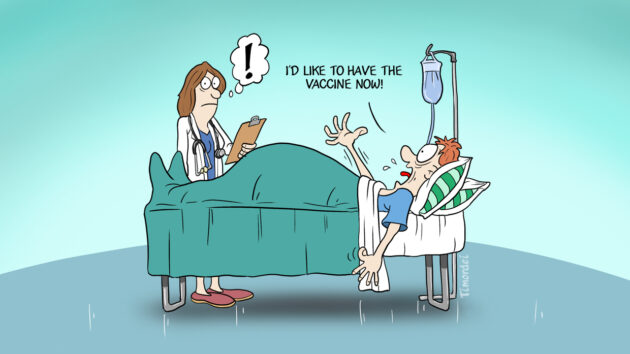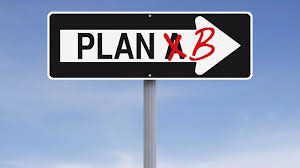Tim Ordei
As far as my political leanings go… I have no idea – I think I’m left, but I tend to disagree with everyone. I guess in the current political climate I would probably describe myself as feeling more comfortable with those on the right. But only because those on the far left are likely to call me an evil Nazi (and accuse me of a string of phobias), while those on the far right will just call me an idiot.
I’m assuming that at some stage over the next six months I will come face to face with Covid. So I have put together an action plan to get myself prepared for my upcoming battle with this virus. I’m not a doctor, and this is not medical advice. This is just my opinion, and a strategy for myself to help get my head around the options I have. While I am no expert in anything scientific, I have spent far too much time watching doctors and researchers who are experts in their field discuss the topics below. I believe I’m taking an evidence-based approach.
1. Exercise
Exercise has been shown to be the biggest single intervention I can do to improve my overall health. It will lower my blood pressure and cardiovascular disease risk as well as improve sleep, depression and anxiety – all factors that will decrease the severity of Covid. I will also lose weight, which will reduce my vulnerability to infection. Unfortunately, as I get older, losing weight is becoming harder to achieve. Getting my BMI under 30 would be a good start, but ideally, I want to get it down to 25. The goal is to go to the gym at least 3 days a week and maintain at least the recommended 150 minutes of cardio each week.
2. Change my diet
Diabetes seems to be one of the highest-ranked comorbidities for Covid patients in ICU, so the goal is to improve my blood sugar levels. The plan is to eliminate from my diet sugar, highly processed carbohydrates and alcohol. According to numerous studies that should make a big difference. This will also help me lose weight.
3. Vitamin D supplements (along with zinc).
Maybe this should be higher up the list. The number of studies showing the benefit of Vitamin D in improving immune response is growing, and it is compelling. Most of the population are vitamin D deficient, especially the elderly, those in colder climates and people with darker skin. So the plan is to take 2000 IU Vitamin D and 30 mg Zinc each day.
4. Cold Thermagenisus and Hydrotherapy.
I found this topic fascinating, and it will probably be the hardest on this list to achieve. Wim Hof has popularised Cold Therapy in recent years, and it seems to be gaining more scientific evidence as an effective strategy to improve immune response. The Seventh Day Adventist Sanitariums also used hot/cold fomentation treatments to great effect during the 1918 ‘Flu pandemic. Taking cold showers will also lower my power bill.
5. Stress Management
Anxiety is well up on the list of comorbidities that will increase my chance of ending up in hospital. So the goal is to manage my stress better. Try to work less and socialise more. Take up meditation, including long walks and cycling in green spaces. Reducing screen time, especially the use of social media, will lower my stress levels significantly.
6. Get the Pfizer Vaccine
This is a controversial one (depending on whether you are pro- or vaccine-hesitant). Either because it’s number 6 on the list (and not number one), or just because it is actually on this list. The RNA vaccine looks like very clever technology and could be a game-changer in health care but, from the latest reports I’ve seen coming out of countries with high vaccination rates, it doesn’t look like the silver bullet I was hoping it would be. It seems like I still have a high chance of infection, but it will prevent a considerable number of hospitalisations and deaths, and in my age group, it’s highly recommended. However, getting the vaccine doesn’t negate the need of achieving all these other goals. Improving my health will present me with a much better outcome than attempting to rely on the vaccine alone.

7. Fasting
Like exercise, intermittent fasting activates autophagy, which boosts the immune system. I’ll see if I can manage one day a week without any food.
8. Sleep
This one is obvious even without the studies. If I’m tired and run down I get sick more easily. I need to get 8 hours of sleep each night and try to keep to a regular sleep schedule.
9. Breathing
I need to pay more attention to how I breathe, and that it’s through the nose (not my mouth), even when exercising. This will have a number of health benefits including increased oxygen uptake, and allowing nitric oxide, which is produced in the Paranasal Sinuses, to be inhaled. This plays a significant role in both immune and cardiovascular health.
Deep Breathing exercises are effective at helping with anxiety and improving sleep which all lead to improved health. I can combine my breathing exercises with the cold showers.
10. Wearing a Mask
Another controversial subject. N95 masks make a difference in preventing transmission – but they need to be clean and fitted properly. There doesn’t seem to be any significant difference between cloth masks and no masks, according to a recent large scale clinical trial in Bangladesh. I’m not sure what the social or developmental impacts of wearing masks are (especially for school-aged children) and if the benefits of wearing masks for long periods of time are offset by the negative health effects of hypercapnia and induced deoxygenation. I’ll wear a N95 mask when in crowded indoor spaces (shops and public transport). There doesn’t seem to be any conclusive evidence wearing them outside will help reduce transmission, especially when I’m exercising.
11. Use the NZ Covid Tracer App
I have a non-compliant personality, so I understand the arguments of libertarians who are concerned about civil liberties. But, I have a phone in my pocket – so I already have multiple apps tracking me. It’s not quite 1984 yet, so am happy to use the app. I may reconsider this decision when I start seeing strange vans parked outside my house.
12. Basic Hygiene
Wash my hands, don’t touch my face, and if I’m feeling unwell – STAY AT HOME. These are essential habits that should be applied at any level, including level 0.
They are the goals… at least until the next study comes out.
To round off my action plan, I summarised a few concerns about the politics of the current pandemic – and what I think could be done to improve the discourse.
An Unhealthy Population
Covid seems to be a pandemic of the unhealthy – not just the unvaccinated. Figures I have seen indicate over 94% of Covid hospitalisations are patients with pre-existing medical conditions. This is why my list above are nearly all goals to improve my health. So why have I only heard about the vaccine, and never once have I been told by government or medical officials that making healthy lifestyle choices is a good way to protect myself from Covid?
To then claim that the carnage caused by Covid is the fault of those who aren’t vaccinated is disingenuous. It’s an argument that isn’t giving the hesitant a lot of confidence in the vaccine. Maybe I can be more proactive in lobbying my MP to make changes. Just a few ideas: Put kitchens in low decile schools and serve cooked breakfasts and lunches (all decile schools probably need this). Tax processed foods and subsidise whole foods, and offer free (or subsidised) gym membership for every New Zealander. I’m sure these options would be cheaper and less disruptive than lockdowns.
Polarisation
The constant censoring of qualified experts by social media has been concerning. At the beginning of the pandemic, there were no guidelines other than symptomatic care. Doctors around the world were trying to find ways to help their patients, and they still are, especially in the many countries that can’t afford the vaccine. When media and authorities call Ivermectin an unsafe horse dewormer when it’s been given to over 3 billion humans with almost zero deaths, it is not helping convince people they have their best interests at heart. By ridiculing frontline doctors that are trying to learn if off-label antiviral medication can really help, especially when they don’t have any alternatives, authorities are just casting more doubt on their motives and the vaccine.
The behaviour of the pro-vaccine lobby has been ugly. Their treatment of those worried about the vaccine reminds me of the 14th Century witch hunters who thought burning heretics would stop the plague. Mocking and gloating over the deaths of anti-vax campaigners won’t win many converts.

I have listened to quite a few anti-vaxers, and there are lots of reasons why people are worried about the RNA vaccine and micro-chips aren’t one of them. The anti-vax movement is not about being anti-science, it’s about a lack of trust in institutions, which started after the 1976 swine ‘flu fiasco.
The more they are condemned and shamed, the more suspicious they become. If I’m trying to convince someone to get vaccinated. I try not to be condescending. There are many people who’ve had bad experiences with medicine and health services, so I listen, and hopefully, I’m empathetic. A bit of humility won’t hurt either… Medicine has a chequered history. Until the beginning of last year, pharmaceutical companies were one of the least trusted industries. And science has been wrong in the past… a lot.
It seems to me the Covid saga is about reducing stress on the health system – which is a serious concern, but it’s not about deaths. If it were, we’d also have prohibition, regulated personal vehicle use and a heavily taxed food system to reduce diabetes and cardiovascular disease, which will kill far more people than Covid ever will.
It seems to me to be counterproductive to accuse people of wanting to see loved ones die because they won’t wear a mask or get a vaccine, while we feed kids junk food, over-consume alcohol, and do little to improve housing. While Covid is causing havoc both on health and economies, many don’t see it as their or humanity’s most pressing problem.
Creating Covid hysteria is giving the perception that there might be alternative agendas, which only feeds conspiracy theories. If I see someone behaving in a way I disagree with, I think before accusing. They may have a good reason for what they are doing or it may be they just have a different perspective. I watch out for social contagions and try not to be sucked into group think. Instead of judging them, maybe it would be helpful to just ask them why.
Be Kind
I hear Jacinda often telling us to be kind. That’s good advice. It’s probably good medical advice too. The one thing people universally fear (even more than Covid) is other people. A kinder, more caring environment where people are not shamed or condemned for decisions they have made (good or bad), will put them in a much better frame of mind to cope with Covid.
I’ll take Jacinda’s advice: be kind. Smile more, say hello to strangers, and try to have some fun. And don’t condemn people for choices you disagree with. If I judge, I get angry; if I’m angry I get stressed. If I’m stressed it will put me in a much worse position to deal with Covid when I finally come to face it.

